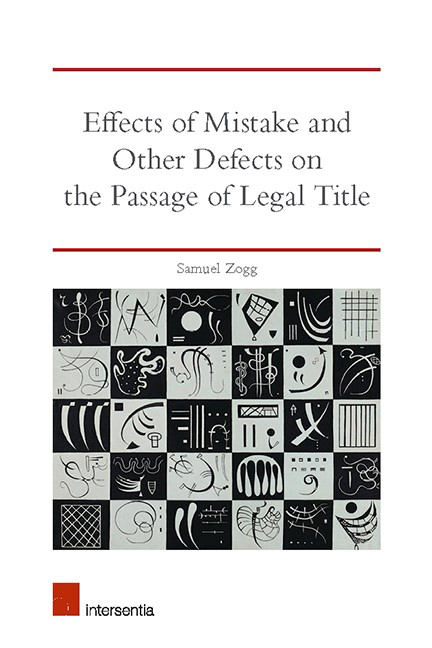Book contents
- Frontmatter
- Dedication
- Preface
- Acknowledgements
- Contents
- List of Cases
- List of Abbreviations
- Chapter 1 An Introduction to Defective Transfers of Property
- Chapter 2 Transfer of Legal Ownership in Tangible Movable Property
- Chapter 3 Defects which Prevent the Passage of Legal Ownership
- Chapter 4 Fundamental Mistake in Particular
- Chapter 5 Conclusion
- Bibliography
- Index
- About the Author
Chapter 2 - Transfer of Legal Ownership in Tangible Movable Property
Published online by Cambridge University Press: 09 November 2019
- Frontmatter
- Dedication
- Preface
- Acknowledgements
- Contents
- List of Cases
- List of Abbreviations
- Chapter 1 An Introduction to Defective Transfers of Property
- Chapter 2 Transfer of Legal Ownership in Tangible Movable Property
- Chapter 3 Defects which Prevent the Passage of Legal Ownership
- Chapter 4 Fundamental Mistake in Particular
- Chapter 5 Conclusion
- Bibliography
- Index
- About the Author
Summary
The previous chapter has offered a brief introduction to the law of defective transfers of ownership at a somewhat abstract level. Before considering the question of how certain kinds of defects (particularly mistakes) affect the passage of legal title, we must examine the mechanics of how precisely legal ownership is transferred from one person to another. Our analysis will be broadly confined to consensual inter vivos transfers of legal title in tangible movable property (goods and corporeal money). Involuntary transfers by operation of law, for example upon execution or bankruptcy or as a result of accession, specification, mixture or tracing, or transfers of title in contemplation of or upon death are beyond the scope of this book.
It is surprisingly difficult to state the rules governing such consensual inter vivos transfers of legal ownership. In contrast to transfers of land, this branch of the law is still largely underdeveloped. Modern ommon law basically recognises three different modes of how legal title in tangible personal property may be transferred, namely transfers by delivery, by sale (i.e. by mere intention) and by deed.
Deeds may be used to transfer any kind of personal property (goods or corporeal money) in any kind of transaction (gratuitous or commercial). Transfers by deed apart, delivery is required to transfer corporeal money or to transfer legal title voluntarily (i.e. by an informal gift); however, the mode of transfer by delivery may also be used for any other transfer of legal title in personal property. Transfers by sale are governed by the Sale of Goods Act (SGA) 1979. Strictly speaking, this mode of transfer only applies to proper sales, i.e. transfers of legal title in goods for money consideration (but not to the corresponding transfer of legal title in the money). Though this is not finally settled by authority, it will be argued that the mode of transfer by sale, i.e. a transfer by mere intention, is equally available – though based on the common law rather than the SGA 1979 – outside the strict sale context, namely with regard to transfers of legal title in goods (other than money) for non-money consideration, for example barters. It follows that the availability of a transfer by mere intention depends on the nature of the transaction (gratuitous or for consideration) and the nature of the chattel transferred (goods or money).
- Type
- Chapter
- Information
- Publisher: IntersentiaPrint publication year: 2019



